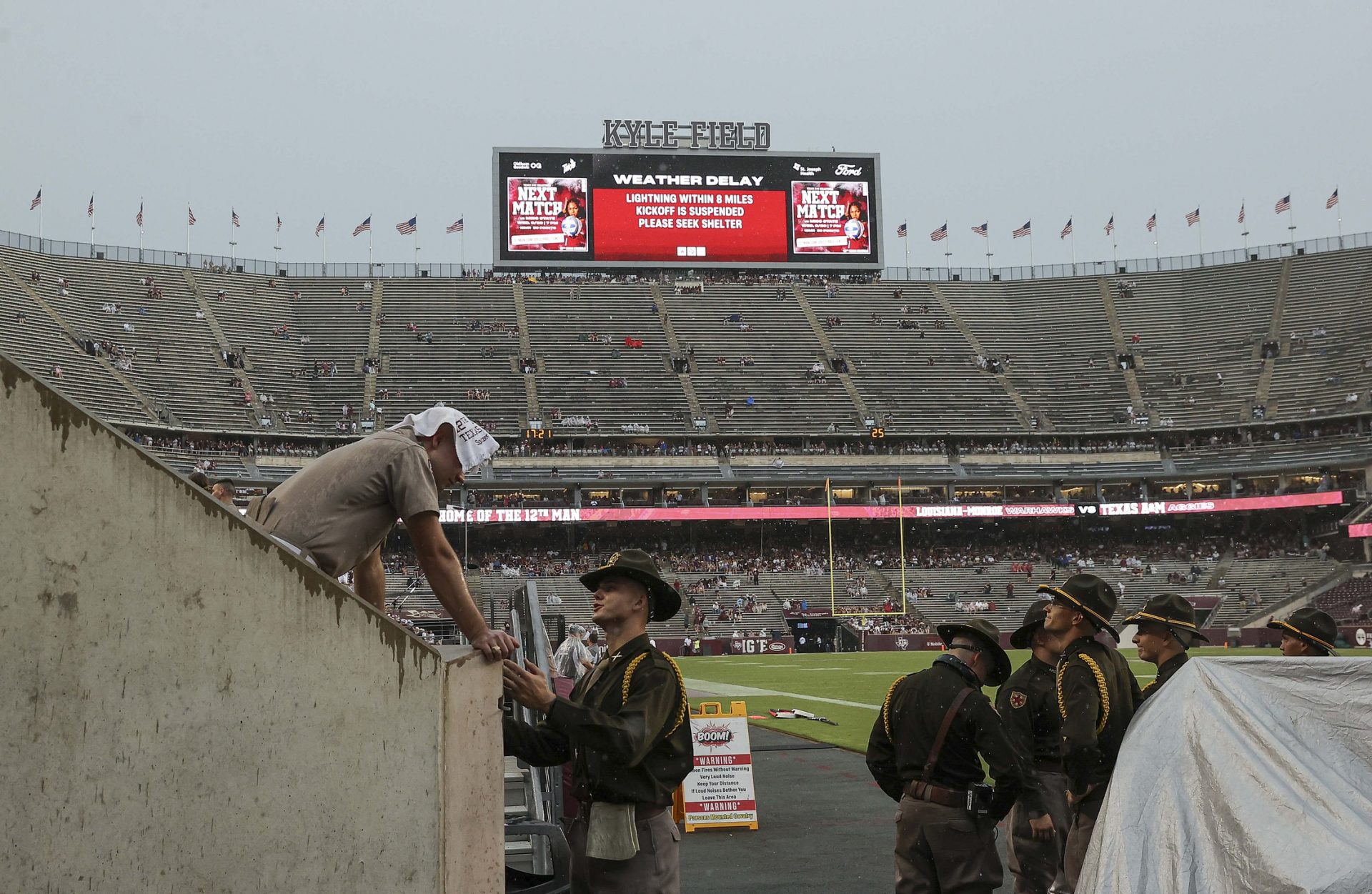College football players are tough, and teams will play through just about anything. But every once in a while, Mother Nature decides that it simply isn’t a great day for a college football game.
What happens in a college football game when the weather just won’t cooperate, delaying the game?
What Can Cause a College Football Weather Delay?
Weather impacts college football games in a variety of ways, but it doesn’t usually stop a game while it’s being played. Every once in a while, though, the conditions are dangerous enough to stop a game that has already started.
Usually, that’s because of lightning. Teams will play through all sorts of bad rain, wind, snow, and even hail, but if there’s lightning, the teams run for cover. This was the case for UCF and Colorado in Week 5, and the delay caused the kickoff of the game from 3:37 pm ET to 4:20 pm ET from Orlando.
MORE: Simulate the College Football Season with CFN’s College Football Playoff Predictor
When inclement weather strikes an outdoor football game, there are very specific rules that must be followed.
Teams will play through the rain and wind, but if there’s lightning within an eight-mile radius of the stadium, the game is immediately paused for a 30-minute weather delay. However, if there’s another lightning strike within eight miles, that timer restarts.
They won’t cover the field like you see in a baseball game, but teams and fans will be forced to evacuate.
If the weather delay is long enough, the players will be granted a brief warm-up period after the conclusion of the delay but before the game is resumed from its previous spot.
What Happens if a College Game Is Canceled Due to Weather?
There is plenty of precedent of college football games being canceled due to weather, but these are typically non-conference games canceled well ahead of time.
For example, if a hurricane is expected to impact a game or travel, the teams will work to reschedule it. Non-conference games are typically deemed less important to the outcome of an entire season and are often ignored if it’s too difficult to reschedule.
Conference games are a different beast. Canceling a conference game can often have a widespread impact on the season’s results, causing issues with fair championship outcomes. As a result, teams often work to reschedule or move the game.
If weather delays a game already in progress, though, things can be tricky. Teams typically want to do everything they can to complete the game, even if that means waiting hours to finish.
If the delay lasts too long, however, teams, coaches, and athletic directors will get together to discuss next steps.
Sometimes, the weather delay is early enough in the game to justify just canceling it and throwing out the result. If the delay occurs later in the game, and that game is trending towards a particular outcome, it can be called a win for one team.
But this is college football, and both teams almost always want to compete. So the teams will probably wind up waiting it out.
College Football Network has you covered with the latest from the ACC, Big Ten, Big 12, SEC, and every Group of Five conference and FBS Independent program.


